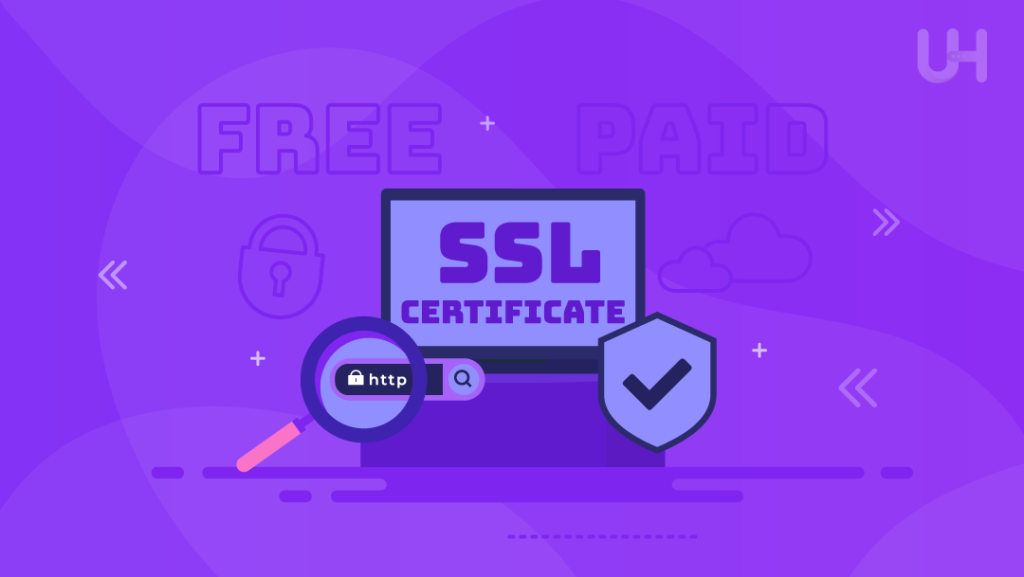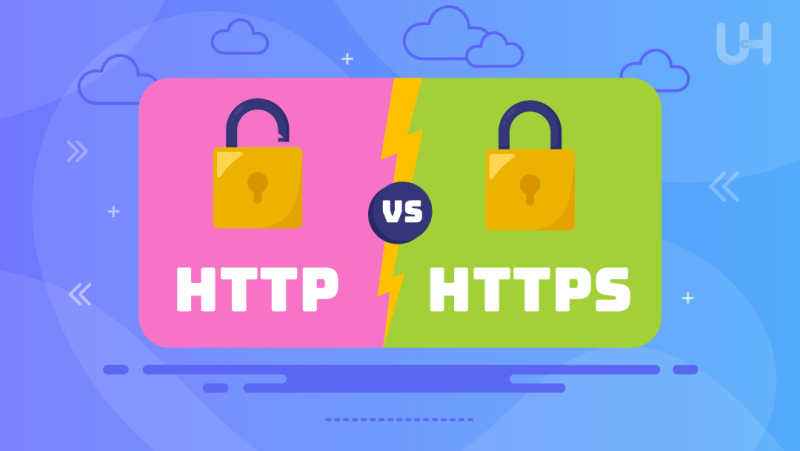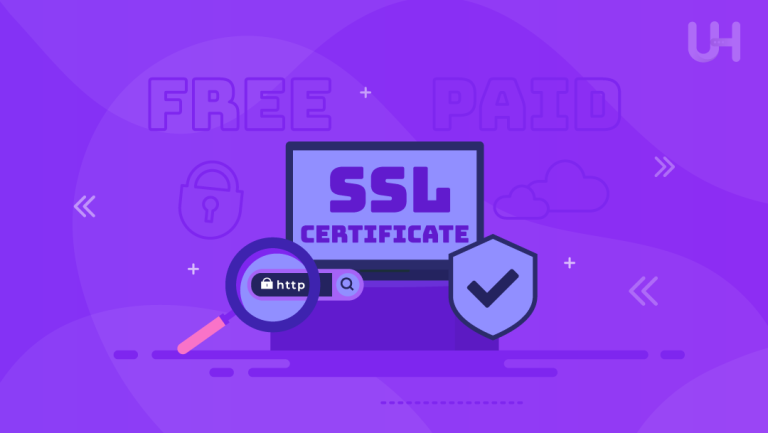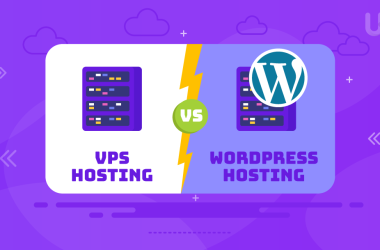As technology and internet usage increases, the consideration of HTTP versus HTTPS has become a vital topic in the digital world. Security cannot simply be a preference today; it has emerged as a fundamental requirement. The use of the internet has increased significantly with each passing day, and so have the cases of data breaches. Non-secure websites provide hackers an easier opportunity to access confidential private information such as passwords and payment information.
HTTPS has emerged as the standard seal of security for browsers because it encrypts sensitive information. With no encryption (HTTP), there is no guarantee of safety and protection which puts users at the risk of data, identity theft and information theft. No surprise HTTPS has been friendly embraced by many websites to ensure user security while browsing these days. This shift shows the high increase of demand for enhanced protected communication over the web and the safe transfer of data.
Both HTTP and HTTPS serve as browser protocols for transmitting information to a website. Knowing the differences between HTTP and HTTPS will help you take control of your online privacy, presence, and security.
What is HTTP?
HTTP is an acronym that stands for Hyper Text Transfer Protocol. It is the stepping stone for any type of data transfer over the internet. A browser is able to interface with a server because of HTTP. With HTTP, when a user browses a page, the user’s browser sends a request to the server through HTTP for the pertinent data. With modern technology, the information requested is relayed to the user’s browser, and relayed to the server, almost immediately. The problem is that in this case, the information transmitted under the provisions of HTTP will always be in unencrypted format.
Role of HTTP in Web Communication
When paired with CDNs (Content Delivery Networks), HTTP further enhances the pivotal accessibility of the websites to end-users. As stated earlier, HTTP operates on the request-response principle. For instance, clicking on a link or entering the URL into a browser initiates an HTTP request to the server. The server processes the request by retrieving the corresponding data and sending back various files like HTML documents, images, or others. Since there is no encryption associated with HTTP, any data being sent over a network can very easily be intercepted and read by someone monitoring the network. That makes using HTTP on sites that require sensitive information like passwords or credit card numbers impractical.
Common Use Cases for HTTP
Nowadays, with HTTPS being widely adopted, there are fewer examples of using HTTP. However, some persist. It is commonly found in areas of less concern, such as someone’s personal blog, educational sites, or even internal network pages. These domains do not typically contain very sensitive user information. Additionally, other less sensitive situations such as internal testing, rapid data shipment or transfers also use HTTP. Still, most users are more inclined to trust and use products offered under HTTPS due to the enhanced security offered.
What is HTTPS?
HTTPS is an acronym for HyperText Transfer Protocol Secure. It is an advanced version of HTTP which was created for secure communications over a computer network. In the ongoing war between HTTP and HTTPS, HTTPS wins because it encrypts and protects the movement of information between web client and server. This protection is fundamental for computers in a modern age because information like passwords and credit card numbers can be intercepted while being transferred from one computer to the other. As a result, the internet provides surfing security which modern websites are keen on.
Encryption with SSL/TLS
An SSL or TLS (Secure Sockets Layer or Transport Layer Security) encryption is applied to HTTPS for data protection. SSL encryption takes place on the messages passing between a client and server, (dedicated web server for example). When a user logs into a site with HTTPS, the connection between the browser and the server is made, and keys are exchanged that encrypt the messages so that they cannot be read by intruders. SSL encryption guarantees that all private information, payment details, and credentials provided for access during online transactions will be tamper-proof. Also, SSL is used for securing emails transmission (SMTP, IMAP and POP3), virtual private networks (VPNs), and other services network type.
Secure Communication
One of the salient features of HTTPS is communication security. It guarantees that the information being exchanged between the browser and server is secure. Eavesdropping, data alteration, and unauthorized access by third parties is stopped. For instance, when you fill in your details on an HTTPS site, such details are encrypted during transmission to the server. Only the server you have sent your information to can decode such data. Thus, man-in-the-middle attacks cannot gain access to this data. As such, eCommerce websites, banks, and any user data platforms deal with such sophisticated security features.
Role of SSL/TLS Certificates
An SSL/TLS certificate is used for HTTPS enabling a web page as it is a digital file. It ensures the proper identification of the site in question and the server-browser link will be protected. It is a commonly accepted practice for anyone who intends to visit an HTTPS page to confirm the security of the site. SSL certificates enable the site to pass as safe and trustworthy. Unlike other web pages, HTTPS sites must have an SSL/TLS certificate. Besides encryption, SSL/TLS certificates offer trust markers, which include the padlock symbol indicating that the webpage is secure.

Key Differences Between HTTP vs HTTPS
The crucial differences between HTTP and HTTPS revolve around the parameters of security and data protection, trust, and SEO.
Security
As we all know, HTTP does not rely on encryption when transferring data from the browser to the server – it is mostly in plain text. This makes it easy for hackers to read sensitive data. Accessories like PCI and PCI DSS were created to protect data but have done little to improve HTTPS security. In contrast, HTTPS uses SSL/TLS, which provides a layer of encryption over communication and guarantees that even when data is breached, it cannot be understood or misutilized. This adds a protective layer over information put forth by the user and helps mitigate cyber-attacks. Therefore, HTTPS is favored over HTTP when dealing with sensitive information.
Data Protection
HTTP does nothing to hide sensitive information like passwords, credit card numbers, or other personal details while transmitting them. This greatly enhances risks of data theft and unauthorized access to personal information. On the other hand, HTTPS does encrypt and hide data so that a good amount of information remains concealed. For instance, when you give out your credit card details on an HTTPS site, that information is scrambled before being sent. HTTPS encryption furthers data privacy because only the intended server is capable of decoding the data. Online transactions may be done safely due to the avoidance of identity theft or fraudulent activities that HTTPS shields users from.
SEO Impact
Safe browsing being one of the most important features users are concerned with, Google has started favoring HTTPS websites to HTTPS giving them better ranking on their web pages. The ranking of websites that use HTTPS is higher than those that only use HTTP. This creates an SEO incentive for website operators to migrate to HTTPS. Also, Google Chrome and other browsers label HTTP sites as “Not Secure,” which discourages people from accessing those sites. For businesses, HTTPS improves their visibility, increases traffic to their sites, and allows them to build credibility.
Trust Indicators
In addition, HTTPS sites display trust marks that bolster user assurance. A client who accesses an HTTPS site will notice that it displays a padlock on the address bar of their browser. This indicates that the connection is secure and encrypted. Other web utilizers who have more sophisticated SSL certificates display their business name in green within the address bar. These trust marks provide some level of assurance that the site is genuine and secure. HTTP websites do not provide these marks and thus, users are bound to doubt their safety and reliability. By migrating to HTTPS, trust can be built with users and signs of higher engagement can be realized.
Upgrade to HTTPS and Secure Your Site Now!
At Ultahost, you can purchase an SSL certificate and secure your site today! Protecting your site with HTTPS is not optional anymore, it’s crucial for trust, search engine optimization, and safeguarding users.
Why HTTPS is Important for Websites
Maintaining data security, trust, regulatory compliance, and eliminating browser safety warnings are key reasons why HTTPS is crucial for websites.
User Trust and Confidence
HTTPS helps build user trust and confidence more than anything. The “Secure” label and Padlock symbol in the address bar helps to verify that the site is actually safe. Hence, users do not hesitate sharing sensitive information including payment details and other personal information. On the other hand, HTTP websites tend to raise trust issues and become a problem for users willing to engage. With the help of HTTPS, websites can earn user trust and foster engagement, reduce bounce rates, foster user interaction, and improve conversions by providing a dependable environment.
Protecting User Data
Among the many reasons of why HTTPS is important, user data protection is a major factor. It is crucial not to allow data interception or tampering by hackers while transmitting it. For instance, HTTPS keeps passwords, credit card details, and other login credentials encrypted, making them unreadable for third parties. This measure is significant for eCommerce sites, banking platforms or any website that deals with personal information. Non secured websites expose users to data breaches, eavesdropping, man-in-the-middle attacks, making HTTPS indispensable.
Compliance with Regulations
There are various industries that require websites to observe certain standards related to privacy and security including the use of HTTPS. Legislative rules such as HIPAA as well as GDPR ensure that users information will be securely saved, processed, and stored. HTTPS websites comply policies by protecting sensitive data, and encrypting relayed information. There are serious repercussions, such as legal action and loss of user trust, for failure to adhere to policies. Their trust can also be undermined. Policies are meant to be followed. HTTPS enabled websites encrypt crucial user and transactions data. HTTPS enabled websites prove concern towards users’ privacy. This portrays that a website concerns itself with users’ privacy and policies put in place regarding user data.
Browser Warnings
Browse description modern browsers have started marking HTTP based websites as “Not Secure” showing little regard for the website’s content. For instance, Google Chrome places a major and prominent warning “Not Secure” on HTTP sites which does not enable users to move to the next page or button. This often leads to a mistrust of the site, primarily due to the misleading information signifying lack of security and high bounce rates. HTTPS solves this problem because it removes the “Not Secure” warnings and allows users to browse the website freely. This change is beneficial to businesses because customers are more likely to trust and stay on a site that is secure which improves revenue. User trust can be maintained by switching to HTTPS with users no longer losing customers.
The Evolution of HTTP to HTTPS
The development of HTTP to HTTPS signifies the increasing demand for secure and dependable communication over the Internet.
Early Days of HTTP
To enable simple internet communication in the nascent phase of the Internet, engineers invented the HTTP (Hypertext Transfer Protocol). This protocol enables the transfer of data such as text, images, and files from a server to a browser and vice versa. At that point in time, the internet was a simpler world where the exchange of information was the core activity. Security was not really taken seriously as most websites were non-critical. The simplicity and ease of using HTTP and the exchange of data is very beneficial for primitive websites. HTTP was not efficient enough for the growing population of internet users as more reliable means of communication started becoming a necessity.
The Rise of HTTPS
The evolution of the Internet has brought about several security challenges. The new areas of eCommerce and Banking, together with user accounts, needed sensitive information, including passwords and credit cards, to be protected. Surveillance and data theft are possible due to the absence of encryption in HTTP cyber eavesdropping. Technology advances in HTTPS addressed this issue. Communication between browsers and servers is encrypted with HTTPS using SSL/TLS encryption on HTTP protocol. This development brought security to online interactions and transactions, thus promoting the use of websites that needed enhanced security.
The Shift to HTTPS as a Standard
Step-by-step, HTTPS morphed from a mere embellishment to one of the core attributes of every website, and, today, it is deemed a necessity. Google has also moved to start ranking HTTPS websites higher, which aditionally shifted the adoption rate of HTTPS. With the adoption of browsers beginning to mark “non-secure” web pages as dangerous and not safe, there was an influx in the businesses adopting HTTPS. Now, it is not only sensitive domains that are encouraging HTTPS, but it is recommended for all websites that want to establish a presence on the internet. Since the average user’s privacy can now be protected, HTTPS is an evolutionary part of civilization.
HTTP vs HTTPS in E-commerce Websites
- Protecting Customer Information: HTTPS secures the sensitive information of your customers, such as payment information and personal data. It encrypts transactions so that no hacker can intercept and access confidential data. Unlike HTTPS, HTTP has no means of protecting data so the risk of theft and fraud increases substantially. For eCommerce websites, HTTPS is a must-have to protect customers and their trust.
- Building Customer Trust: Strictly regarding trust, HTTPS also improves the credibility of eCommerce websites since they are able to present a secure connection to their users. The padlock icon displayed on browsers always reassures customers that their data is not being tampered with. This trust inspires customers to complete the purchase leading to improved conversion rates. In the absence of HTTPS customers are likely to refrain from filling out forms and this harms the reputation of the website.
- Impact on Cart Abandonment: These days, cart abandonment happens quite frequently, and in the absence of HTTPS it can go up even further. When customers notice that there are no security indicators, they tend to leave their carts. Modern shoppers prioritize safety and tend to avoid completing transactions on HTTP websites. By switching to HTTPS eCommerce businesses can alleviate cart abandonment and improves sales.
HTTP vs HTTPS in SEO and Website Performance
- SEO Ranking Advantages: HTTPS raises local SEO since it is one of the ranking factors used by Google. HTTPS sites tend to rank higher than HTTP-enabled sites and this gives businesses the incentive to adopt HTTPS, as it increases visibility and organic traffic.
- About Page Load Speed: Thanks to modern optimization strategies, HTTPS does not impact page load speeds significantly. While encryption affects processing time, HTTP makes loading speed much faster. Thus, HTTPS websites tend to perform equally or better than the counterparts.
- Data and Analytics: HTTPS allows for proper referrer data to be captured unlike HTTP. Moving from an HTTPS domain to an HTTP subdomain leads to loss of referrer information. Such a gap can be detrimental for tracking and analysis. With the use of HTTPS, websites can have better marketing intelligence.
Secure Your Site —Switch To HTTPS Today!
Upgrade your website’s security, SEO, and user trust. Ready to take the leap? Visit Ultahost Web Hosting where security and performance reliability sets a great foundation for your website.
How to Switch from HTTP to HTTPS
- Acquisition of An SSL Certificate: The first step is to get an SSL certificate of your preferred type i.e. single domain, wildcard, or multi-domain SSL, from a reputable vendor. Keep in mind that various hosting providers offer free SSL certificates as well.
- Installing the SSL Certificate: After obtaining the certificate, install it on your web server and follow the configurations as instructed by your hosting provider or provided by the control panel. Complete the setup and run tests to check if you’ve successfully activated HTTPS.
- Update Links: Ensure all HTTP links in your content, scripts, or plugins are removed and replaced with HTTPS. Make certain all internal links point toward the HTTPS version of your website. Furthermore, if it’s within reason, reach out to external websites that link to yours and ask them to adjust their links.
- Redirects from HTTP to HTTPS: All HTTP traffic can be securely accessed through HTTPS links when you set up 301 redirects in your server settings. By doing so, users accessing insecure old HTTP links will be redirected to the secure version, helping maintain SEO rankings while avoiding duplicate content issues.
- Adjust Search Engine Settings: Inform search engines of the change by adjusting your website on tools such as Google Search Console. Submit the sitemap using the HTTPS format and watch out for any potential crawling issues. This SEO strategy aids in recovering your ranking in search results during the alteration phase
Common Issues When Switching to HTTPS
- Mixed Content Violations: When a page uses the HTTPS protocol but pulls resources from HTTP such as images, scripts, videos, etc., this leads to mixed content warnings. Such an issue greatly undermines security and may display issues in browsers. In order to solve this issue all resources need to be included in HTTPS either by changing links or plugging secure content.
- Errors with SSL Certificates: The most common SSL errors include expired certificates, misconfigured ones, or the certificate is not trusted. This can lead to browsers blocking or alerting caution to your webpage. In order to avoid this issue, make sure that all SSL certificates are checked and renewed as needed along with proper installation.
- Effect on SEO: There can be some fluctuations with SEO during the switching process on HTTPS. This is caused from being re-indexed from search engines. To avoid having this effect websites should implement 301 redirects, update Google Search Console with your traffic, and keep an eye on traffic levels.
How HTTPS Affects User Behavior
HTTPS influences user behavior for the better by deepening user participation and converting users while showing clear security markers that foster trust.
Increased User Engagement
Conversion rates have also been shown to depend on HTTPS. Security has always influenced the customers decision to purchase goods or fill sensitive information, and it still does. Studies show the willingness of users to complete transactions on HTTPS enabled websites is much higher thanks to the protection given on personal and payment information. This translates into higher sales and lower abandoned carts for eCommerce sites. Ensuring a secure link increases customer confidence which boosts conversion rates and successful transactions.
Impact on Conversion Rates
HTTPS directly influences conversion rates. Security plays a critical role in customers’ decision-making, especially when it comes to making purchases or entering sensitive data. Research shows that users are more likely to complete transactions on HTTPS websites, as they trust the security of their personal and payment details. As a result, eCommerce websites see increased sales and fewer abandoned carts. By ensuring a secure connection, HTTPS boosts customer confidence, leading to higher conversion rates and more successful transactions.
Trust Indicators in Browsers
In the URL bar, visuals such as “Secure” and padlock icons mark a website’s security status. These features play an important role in customer psychology: these visuals will increase the possibility of the users sharing their information in the case of account registration or online purchase. Inversely, websites absent of these markers tend to cause some reluctance and make users abandon the site, lowering engagement and conversion rates. Therefore, HTTPS provides clear visual evidence that increases trust and confidence from users.
Conclusion
HTTP and HTTPS have unique functions, however HTTPS is the predominant choice for contemporary websites. Switching to HTTPS enables user data protection, enhances trust with the customer, and improves SEO ranks. It also improves website reputation while reducing warning messages on browsers. If your website still has not upgraded to HTTPS, take steps now to protect your website, user experience, and confidence in security measures. HTTPS will always remain an essential requirement along with the evolution of web security, thus every website needs to adopt it to ensure security and trust on the internet.
You can enhance your SEO ranks, trust with users, and their data protection by switching to HTTPS. Ready for action? Go to Ultahost Cloudflare VPS Hosting and secure your site with a hosting solution that offers exceptional performance and security.
FAQ
What is the meaning of HTTP and HTTPS?
HTTP stands for HyperText Transfer Protocol, while HTTPS adds security through encryption with SSL/TLS.
What is the main difference between HTTP and HTTPS?
HTTP transfers data without encryption, whereas HTTPS secures data using SSL/TLS for safe communication.
Why should I switch from HTTP to HTTPS?
Switching to HTTPS ensures user data protection, builds trust, and improves SEO rankings for your website.
How does the HTTPS protocol secure data?
The HTTPS protocol encrypts data using SSL/TLS, protecting it from eavesdropping and tampering.
Can HTTP websites rank well on Google?
Google prioritizes HTTPS websites in search rankings, making HTTPS essential for better visibility.
What happens if my website uses HTTP instead of HTTPS?
HTTP websites are flagged as “Not Secure,” deterring users and risking data breaches.
Do all websites need to use HTTPS?
Yes, HTTPS is essential for all websites, especially those handling sensitive user data.











